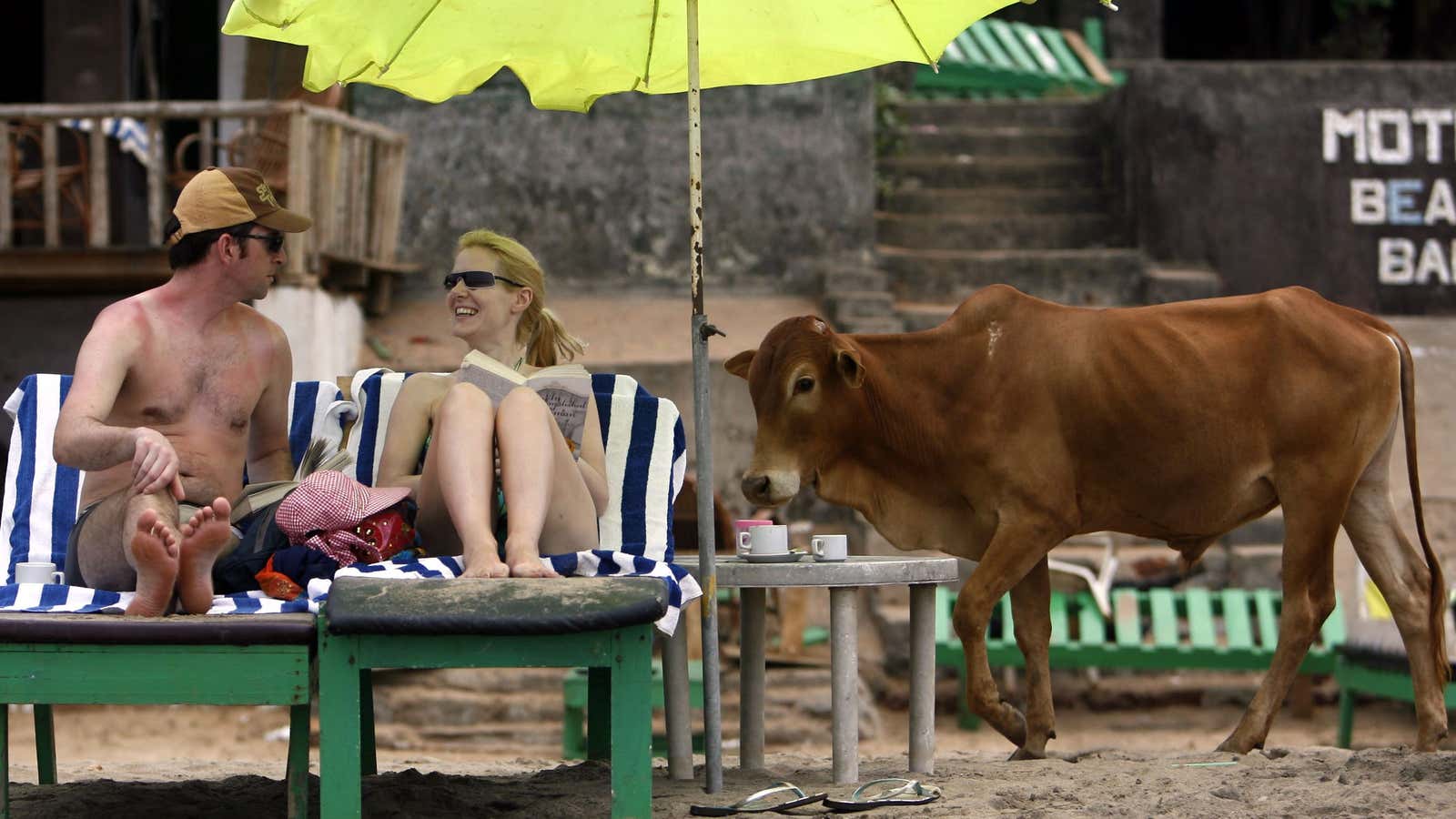After nearly 20 months, India finally reopened itself on Nov. 15 for fully vaccinated foreign tourists. This was facilitated by steadily declining covid-19 numbers in the country.
India’s crippling travel and hospitality sectors will be considerably relieved. International tourists brought in around $30 billion in foreign exchange in 2019; the earnings plummeted in 2020 by up to 76%.
However, are the country’s travel and tourism sector and airports ready for a potential revival? Industry experts believe they are.
“The vaccination campaign has been prioritised for the states associated with the tourism sector, which further strengthens the preparedness of these states…the industry is making sure to adhere to all protocol and norms relating to covid-19 as notified by the government,” said Rikant Pittie, co-founder of travel portal EaseMyTrip.
“Being one of the most impacted sectors, there is an increased focus on safety and hygiene among all stakeholders in the tourism sector.”
Recent scenes from Indian airports paint a different picture, though.
Is India’s aviation sector prepared?
In November, India allowed foreign tourists to fly in on chartered flights. Domestic air travel is also on the rise.
But several airports have struggled to handle the revival in footfalls, especially amid fears of a third wave of covid, fueled further by a sudden rise in numbers in Europe. Earlier, in October, their inefficiency was exposed at the beginning of the annual festive season.
Now, with the return of inoculated tourists from 99 countries (pdf) on commercial flights, things could worsen. These tourists are only required to monitor their health for 14 days after arrival, according to the latest norm issued by the government.
Hopes rise for the hospitality industry
It is unlikely that the hospitality industry, still recovering from the pandemic’s debilitating effects, is prepared for a potential tourism boom either.
Losses have forced many establishments to shut down, temporarily or otherwise. In Maharashtra alone, around 40% of the hotels and restaurants have shut down completely due to covid.
However, the government’s change in stance could spell a bonanza for those still in business, say experts.
“There could be a jump in hotel fares for a while, but we believe hotels are equipped to handle the demand, and with supply matching demand soon, fares will be stabilised within a short time,” Pittie of EaseMyTrip said.
Room tariffs have been under a lot of pressure lately, especially for luxury properties. “Rates have been impacted since the onset of the pandemic and will take 2-3 years to go back to original levels,” Zubin Saxena, vice-president of operations of South Asia at Radisson Hotel Group, had earlier told Quartz.
However, confident of the immediate future, the beleaguered sectors are excited about a possible recovery now.
“Many…are hoping to get back to the good old days. We have also started rehiring tourist guides. The finances are still a little rough and getting back to the pre-pandemic levels will take somewhat between 2-3 years, but it’s at least the start we have been waiting for more than a year,” said Neelesh Kumar, owner of a Noida-based travel agency.
Foreign tourists visiting India
India’s easing of restrictions on foreign tourists arriving on commercial flights is well-timed with the holiday season.
In 2019, nearly 50% of all such arrivals were between October and January, and mostly for leisure, according to government data.
Experts, however, warn that only a “collaborative effort” by all stakeholders—government, tourism associations, travel agents—could lead to a profitable revival.
“The need of the hour is to ensure safety…make sure the country does not become complacent as there can be a potential surge in infections if safety and hygiene protocols are not adhered to,” Pitti explained.
